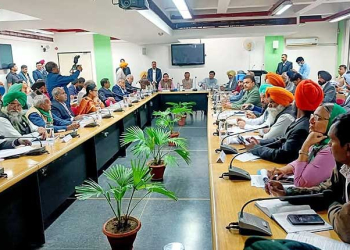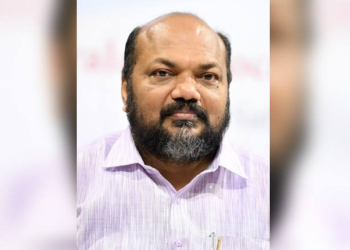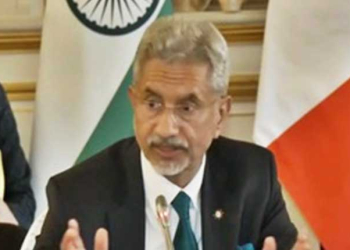New Delhi: “Congress teaches patience, I have been working since 2004, see even Sachin Pilot is sitting here, patience is inculcated in us,” Congress leader Rahul Gandhi had quipped recently while sharing his experience of the marathon questioning by the Enforcement Directorate (ED) in the National Herald case.
It was a response Rahul Gandhi had given to the ED officials who, he said, were surprised by the “patience” with which he answered all the questions and managed to patiently sit for 10-12 hours a day during the interrogation.
The former Congress President was quizzed for more than 50 hours spread over five days in the National Herald case and during that period his party vociferously protested on the streets of the national capital. Every day, hundreds of Congress workers, including Parliamentarians and legislators, were detained by the police.
Every day, a large number of police personnel were diverted towards Congress headquarters and outside the ED office to prevent any untoward incident due to the presence of a large number of party workers.
The police personnel in heavy numbers, along with the paramilitary and rapid action forces, were also deployed at several points between the ED office and the Congress headquarters on 24 Akbar Road.
The grand old party accused the ruling BJP of using Central agencies for its own political vendetta. The party leaders said that the Enforcement Directorate has acted on a fabricated and fake case for which they summoned interim Congress President Sonia Gandhi and Rahul Gandhi for questioning in a case related to money laundering.
“This case with no standing or evidence is just another attempt by the BJP to attack the voices that question its failures and speak out against its despotism,” the Congress leaders said.
So, could this high-voltage ‘ED grilling’, a term most often used when the probe agency interrogates someone for an extended duration, be avoided? If the agency was not going to place Rahul Gandhi under arrest, what was the need of calling him for five consecutive days?
Was it all just a political vendetta? Was there any other way the agency could have got the answers from the Congress leader? Yes, there was an alternative way.
Instead of regularly calling Rahul Gandhi to the office, the ED could have given him a written questionnaire of their queries. Rahul Gandhi could have submitted it in the coming days, and thus it would have helped the law enforcement agencies, who were pressed into service to maintain law and order.
A similar stand was adopted earlier as well, and that too in the country’s one of the most high-profile cases – the 2G scam.
Retired Special Judge O.P. Saini, who was looking after the 2G Spectrum case, had sent 1,000 written questions to the people involved in the matter. He had asked the persons facing prosecution to submit their answers in the coming days. It made the work easy for both the court and the persons involved.
Interestingly, the ED, in a span of five days, had asked Rahul Gandhi just 100 questions, which means an average of around 20 questions per day.
Now, in the coming days, Sonia Gandhi has been summoned by the Ed in the National Herald case. If the agency does not wish to arrest her, it could opt for the other route to avoid turning the questioning into a political theatre.
(IANS)



















